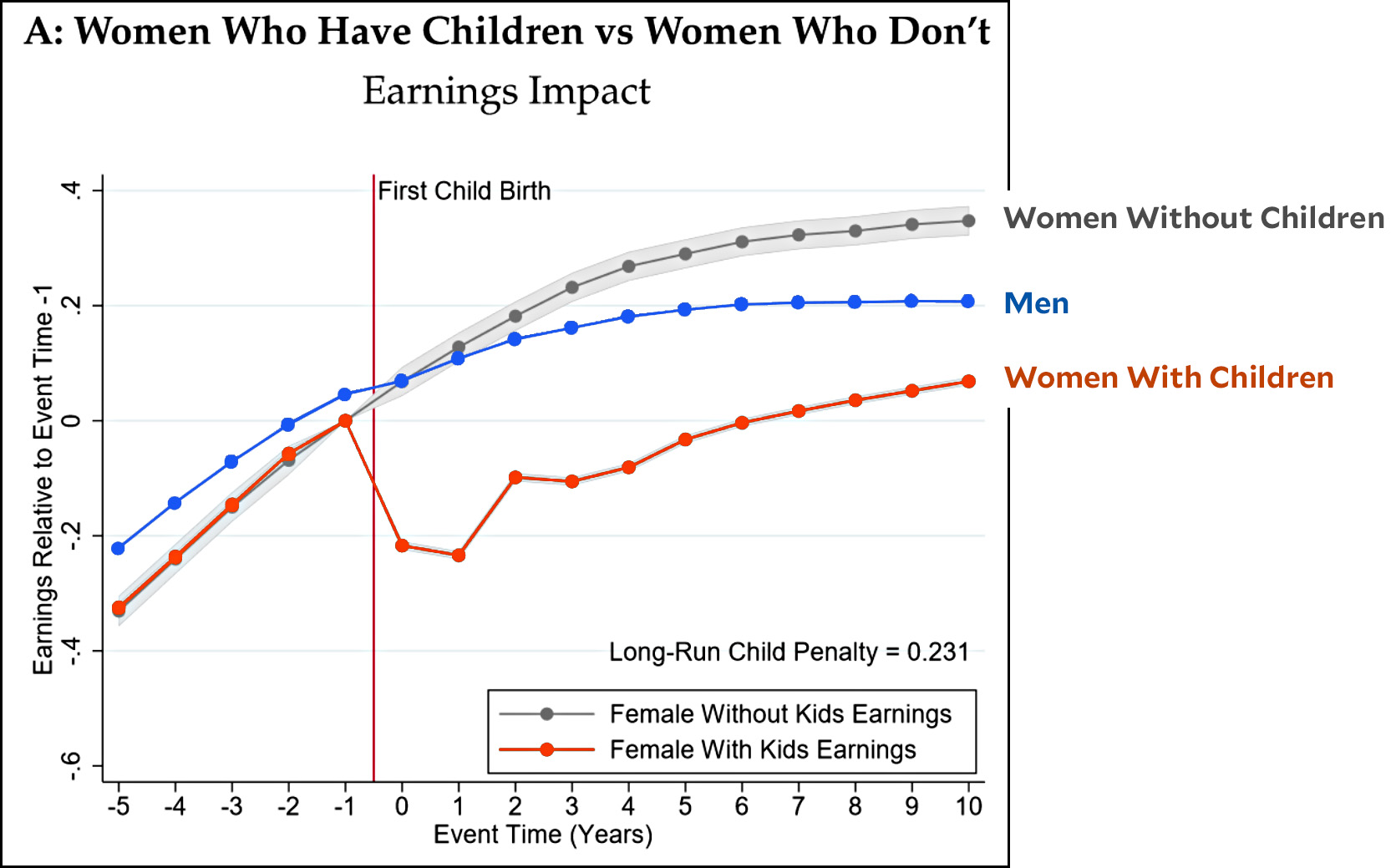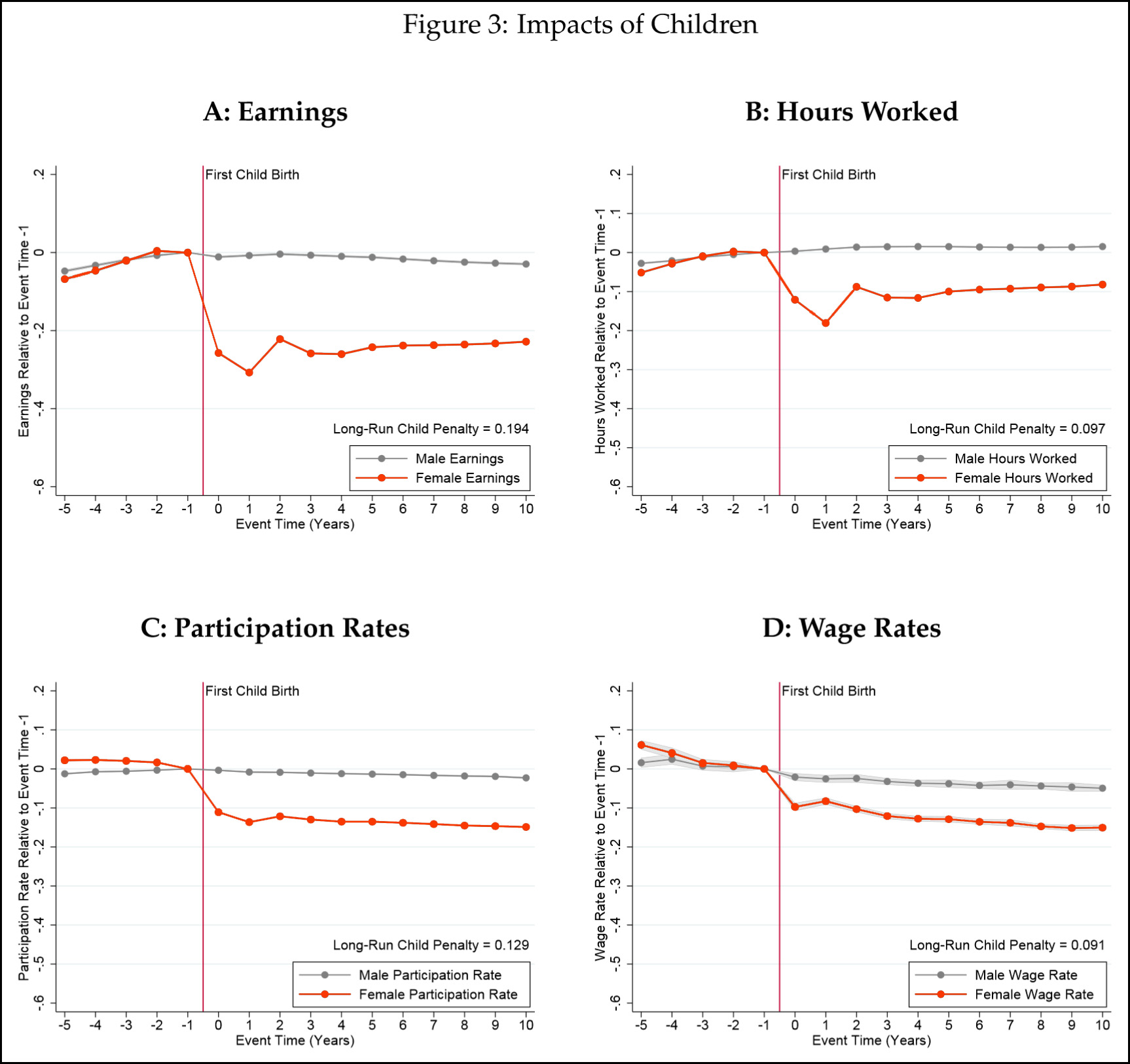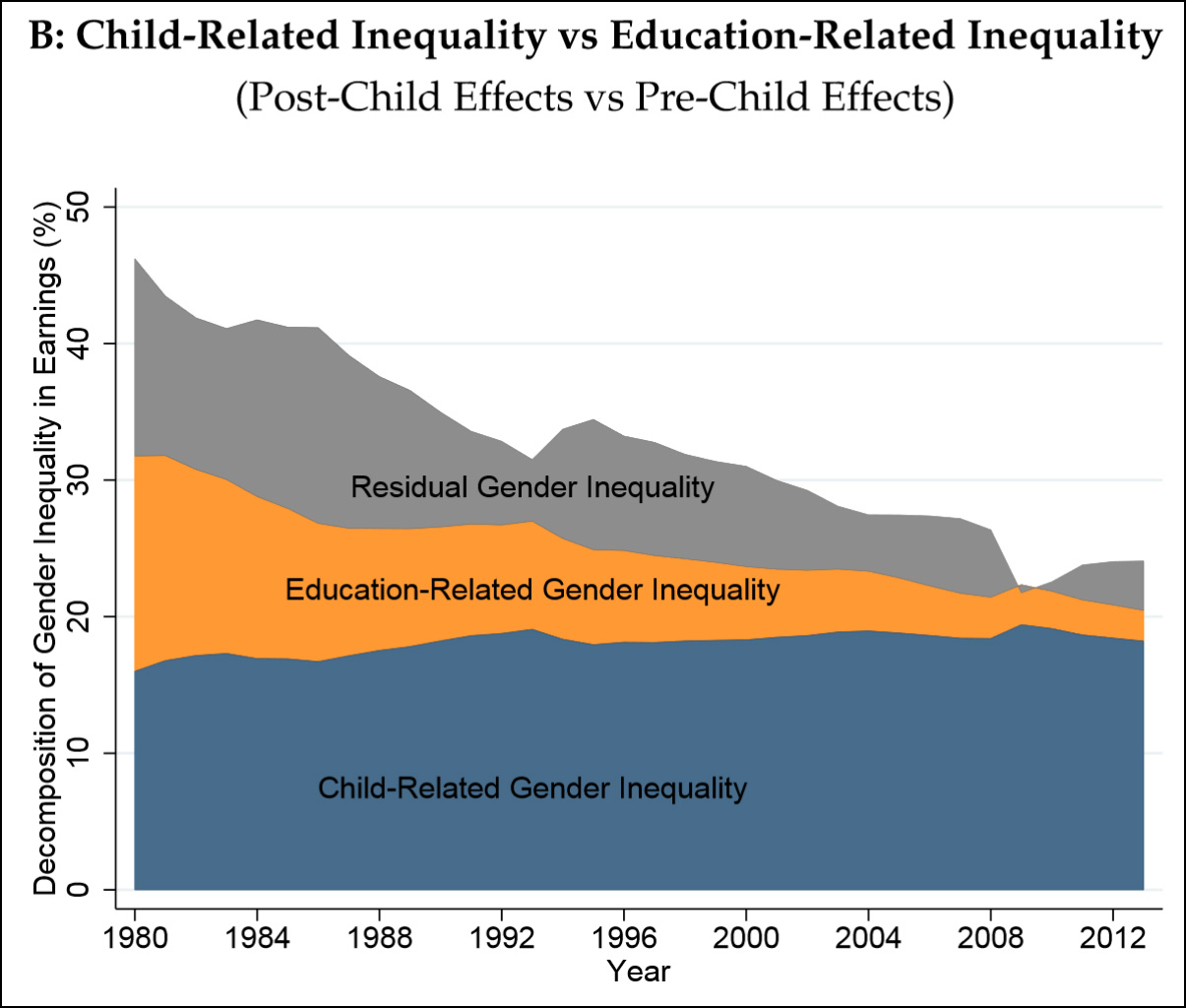Sarah Kliff points today to a new study from Denmark on the gender wage gap. Danes are famously egalitarian, and labor force participation is nearly equal between men and women these days. However, Denmark still has a large gender wage gap—nearly as large as the United States, in fact. Why? Researchers Henrik Kleven, Camille Landais, and Jakob Egholt Søgaard conclude that it’s almost purely a childbearing penalty:

I’ve overlaid men and women in a single chart here to make it easier to compare them. Earnings are shown relative to the year before the birth of a first child, and the trajectories of men and women are similar prior to childbirth. Generally speaking, men’s earnings start a little higher but women’s earnings accelerate a little faster. For women without children and for all men, regardless of whether they have children, these trajectories continue throughout their careers: men suffer no earnings penalty at all when they have children. However, women who have children take a huge hit in earnings.
This is unsurprising. The big question is why they have lower earnings. Here’s a panel of charts that breaks it down:

After childbirth, fewer women work; they work fewer hours; and they get lower wages. And this is unrelated to education level: college graduates bear childbirth penalties that are about the same as high school grads. In fact, nearly all gender inequality has been wiped out in Denmark except for the gender gap due to childbirth:

However, this still doesn’t answer the question of why. Do women with children work less out of preference, or because firms treat them badly and eventually some of them give up? There’s a limit to what administrative data can tell us, but by expanding their dataset the authors are able to conclude that some of it is due to family influence:
Women incur smaller earnings penalties due to children if they themselves grew up in a family where the mother worked more relative to the father….The size of this effect is roughly unaffected by including the detailed non-parametric controls for education and wealth….[This] suggests that female child penalties are driven partly by female preferences formed during her childhood, rather than by male preferences formed during his childhood.
Women from more traditional families form an early preference for working less when they have young children to take care of. Women from more liberal families don’t. In other words, it’s women from traditional families who account for the biggest share of the childbearing penalty. However, the size of the difference between traditional and liberal families isn’t large, so there’s clearly a lot more going on than just that.
That’s the case in Denmark, anyway. Is something similar true in the United States? We lack the detailed administrative data of Denmark, so it’s not easy to conduct a similar study here. However, American studies do show that the gender gap in earnings opens up mostly between ages 25 and 35, which certainly suggests that children are the prime cause. More research, please.














